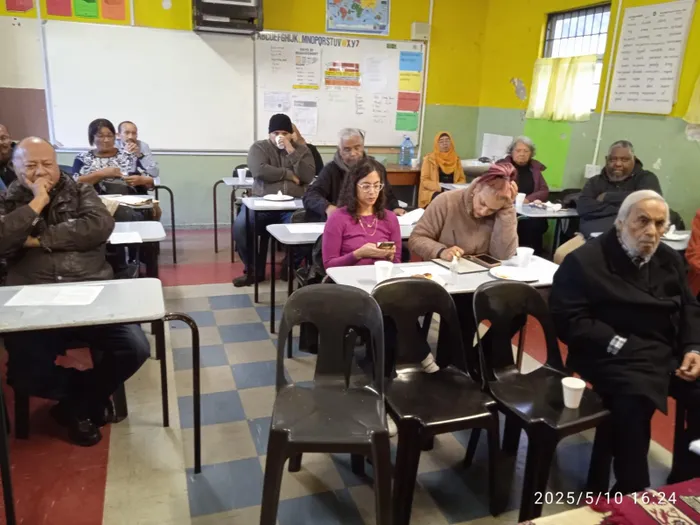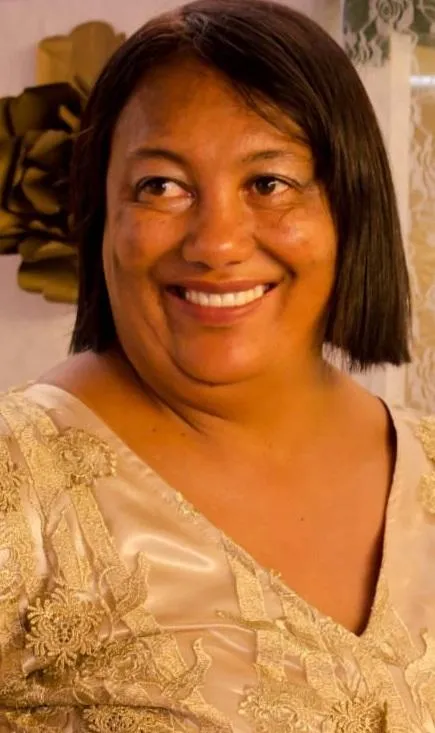Discover your ancestors via DNA testing

The Cape Family Research Forum (CFRF) meeting explored the use of DNA testing kits.
Image: Picture: Supplied
Cape Family Research Forum (CFRF) members learnt how DNA kits can help uncover who their ancestors were.
The topic of the forum's meeting on Saturday May 10 was "Family DNA Project: demonstration, discussion and experience of DNA testing kits".
The CFRF meets on the second Saturday of every month at Muhammadeyyah Primary School in Wynberg.
The talk covered how to use DNA kits, interpret results and integrate DNA findings into family research.
Guest speaker Micheline Fortuin, a family researcher, said a DNA test gives a breakdown of how your parents contributed to your genetic profile. “Each parent contributes 50% of your DNA. If your mom was German and your Dad was Indonesian, for example, you'd be 50% German and 50% Indonesian. Each grandparent contributes 25%.”
Ms Fortuin said her parents passed away many years but she was using a DNA testing kit to find out about her family ancestors the Stoffels and the Jethros of Steurhof and Diep River.
DNA test kits are used to analyse an individual's genetic material and provide insights into various aspects of their biology and ancestry. In the context of genealogy and family research, DNA test kits can help people:
- Discover ancestry: Learn about their ancestral origins, migration patterns, and connections to specific populations or ethnic groups.
- Find relatives: Identify and connect with distant relatives who share similar DNA.
- Explore genetic heritage: Gain insights into their genetic traits, health predispositions, and other characteristics.
Ms Fortuin said she had found out last year that she had a mixed region of ancestors’ blood.

Micheline Fortuin, a family researcher using DNA testing.
Image: Picture: Supplied
From a total of 16 regions, the top five are Southern Bantu, Germanic Europe, Maritime South East Asia, Khoisa aka Mbuti and Bengal.
“I was invited by the CFRF to speak on DNA Testing following a previous session where I spoke at the Stoffels/Jethro family reunion.”
She said the attendees did not take a DNA test at the session but were able to see how the tests worked.
Some had taken DNA tests and were attending the session to learn more about analysing the results.
Ms Fortuin said: “Since these US companies do not have local sales offices or local testing facilities - clients need to be realistic in their expectations of time constraints - allow six weeks for the kits to arrive in South Africa, and for the DNA swabs to arrive back in America after having taken the DNA test. The results will arrive by email within four to six weeks.
“This goes for all non-American countries with DNA testing clients,” said Ms Fortuin.
Mogamat Kammie Kamedien, former vice-chairperson of the provincial archival statutory bodies, the Western Cape Archives Advisory Committee, said: “Conventional genealogical sources are standard paper-based archival documents drawn from the Roeland Street Archives and other documentary heritage repositories such as church archives.
“However, when the paper-based archival trail gets exhausted, DNA testing with genetic profiling results still gives a glimmer of hope to many working families from the subaltern classes, especially from enslaved forced labour migrants and historically disenfranchised communities of colour across the Cape Flats.”
Mr Kamedien said in the absence of a paper-based archival trail as documentary evidence - many first nations families of Khoi roots won't find their origins in the colonial archive, but drawings in caves scattered across Southern Africa in mountain or subterranean caves as storage centres of human memory.
"Family Tree DNA projects offer another avenue in providing a geographic sense of belonging,” said Mr Kamedien.
If you want more information on DNA testing, contact Ms Fortuin at 084 714 5712 and if you want to know when the next CFRF meeting will be, contact Mr Kamedien at 082 827 6180.